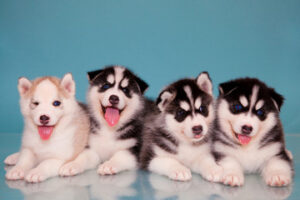Physicians and surgeons both play a vital role in the medical field. However, they differ significantly in their training and scope of practice. Physicians treat medical conditions through non-surgical means, while surgeons use operative procedures to address specific health issues.

After graduating from medical school, Surgeon Phoenix completes a surgical residency that lasts up to five years. Afterward, they can choose to become board certified in their specialty.
To become a surgeon, you need to do well in high school and college. You should also have good grades and MCAT scores. After medical school, you need to go through a surgical residency, which lasts for about five years. This is a long and rigorous process, but it will prepare you to be a successful doctor.
Surgical residents often work very hard and are on call at all hours. They must be able to handle high-pressure situations and make quick decisions during surgery. Besides the responsibilities of performing surgeries, they must work with other medical professionals to ensure their patients get the best care. They can work in a variety of settings, including hospitals and private practice. Depending on their specialty, they may perform either emergency or elective surgeries.
After completing an accredited training program, surgeons must pass two examinations to gain board certification. The first is a written exam called the qualifying examination, and the second is an oral exam known as the certifying examination. Upon passing both exams, the surgeon becomes a member of the American Board of Surgery (ABS). Once you are a board-certified surgeon, you must continue to keep up with your continuing education requirements.
To improve the quality of surgical education, the ACS has a number of initiatives. For example, it has created a Clinical Learning Environment Review (CLER) process to evaluate the learning environments of surgical trainees at their sponsoring institutions. This helps to address some of the issues that affect resident and fellow engagement in safe, high-quality patient care.
Additionally, the ACS has developed a new system of assessment and feedback for residents and fellows called Entrustable Professional Activities (EPAs). These tools allow for frequent, time-efficient, and feedback-oriented evaluation of clinical competency. These EPAs are designed to bridge core competency theory into the context of daily clinical workflow and patient care.
The ACS and multiple surgical professional societies have identified key areas of focus for improvement in the education of surgeons. These focus areas are currently gaining attention, investment, and research in surgical education. These include:
Work Setting
Surgeons are often required to work long and unsociable hours. They may need to be on call at night, during the weekends and even bank holidays. This is because their job involves providing medical care for patients who are in urgent need. They are also often required to travel to different parts of the country or even overseas.
In addition to being able to perform surgery, surgeons need to have good leadership skills. They are often required to lead multiple teams of doctors and nurses. This can be challenging, especially in stressful situations such as emergencies. However, good leadership can help them to overcome challenges and keep their teams motivated.
The most effective leaders use a combination of styles to achieve the best results. For example, they may use the authoritarian leadership style when working with a crisis team, or the democratic and affiliate leadership styles to improve morale and motivation. They should also know when to use the pacesetting leadership style during a critical situation to maintain the momentum of the team.
Moreover, surgeons need to be able to recognize and respond to the needs of their employees. This means that they need to provide regular feedback and ensure that all members of the team understand their roles and responsibilities. They should also make sure that they have a clear process for conflict resolution. This will help them to avoid disagreements that can have negative consequences for the company.
It is also important for surgeons to be able to build strong relationships with their patients. This is especially important for surgeons who specialize in conditions that require frequent patient interaction, such as cancer and heart disease. They can also offer preventive services like vaccinations and screenings to reduce the risk of diseases.
Finally, surgeons need to be able to deal with physical stress. They are exposed to physical risks such as working with scalpels and other sharp instruments, anaesthetic gases, radiation, manual handling, noise and infectious agents. These hazards can lead to fatigue and affect work ability. This can result in reduced job performance and pose a threat to patient safety.
Job Duties
The main job duties of a surgeon include providing consultation and surgical assistance to patients in clinics, hospital wards, and operating rooms. They also provide medical advice to other physicians and nurses. In addition, they may examine instruments, equipment, and the operating room to ensure sterility. They also refer patients to other medical specialists or practitioners when necessary.
Surgeons must have excellent interpersonal skills to work with their colleagues. They must be able to maintain composure and make decisions quickly under pressure, especially during surgery. In addition, they must be able to follow the latest guidelines and protocols for healthcare activities.
They perform a variety of surgeries, including removing damaged tissues and organs, repairing fractured bones, and correcting birth defects. They also prescribe preoperative and postoperative treatments, including sedatives, diet, and antibiotics. They must also prepare and care for patient specimens for laboratory analysis. Surgeons may need to travel to other hospitals to perform their duties, and they must be willing to work long hours and be on-call for emergencies outside of normal working hours.
Some surgeons work in private practices or outpatient surgery centers, where they perform less complex operations than those performed at a hospital. In these settings, surgeons typically have more flexibility with their schedules and can see a greater number of patients. They may also be responsible for coordinating patient care, creating treatment plans, and handling billing and insurance issues.
A surgeon’s career can be challenging and rewarding. It requires a great deal of education and training, as well as an in-depth knowledge of the anatomy and physiology of the human body. It is important to have a strong interest in science and medicine, as well as an ability to solve problems and think critically. In addition, a surgeon needs to have superb manual dexterity and good hand-eye coordination.
Salary
The career of a surgeon requires extensive study and training, along with considerable physical demands. However, the high earning potential of the profession makes it an attractive trade-off for those willing to invest the time and resources necessary to become a surgical specialist.
The average annual salary for surgeons varies by specialty, with neurosurgeons making the highest salaries. Cardiothoracic surgeons are also in the upper echelons of earners, as are orthopedic surgeons. Other subfields of surgery, such as general medicine and plastic surgery, do not earn as much, but still command significant salaries.
Salary levels can be further affected by the work setting, as well as the geographic location. Metropolitan areas and regions with higher living costs often pay surgeons more than rural or less densely populated locations. A physician’s choice to work in a private practice, academic medical center, or hospital can also impact earnings, with private practices typically offering higher earning potential than hospitals.
Moreover, those who choose to become board-certified in their chosen surgical specialties further boost their earning potential. This certification demonstrates their expertise in the field and their commitment to maintaining high standards of care.
Bonuses can also enhance a surgeon’s income, although the exact nature of these bonuses may vary by employer and specialty. Generally, these bonuses are tied to performance metrics such as relative value units (RVUs), quality measures, or patient satisfaction. In addition, a physician’s decision to take on extra shifts or other overtime opportunities can further increase their annual salary.
As with most jobs, a surgeon’s earning potential is largely influenced by their level of experience and the specific skills they bring to the table. Those who enter the field fresh out of school may earn considerably less than those with years of experience and specialized skills, but those who take the plunge into self-employment can substantially increase their overall income by building a solid patient base and a well-managed practice.
